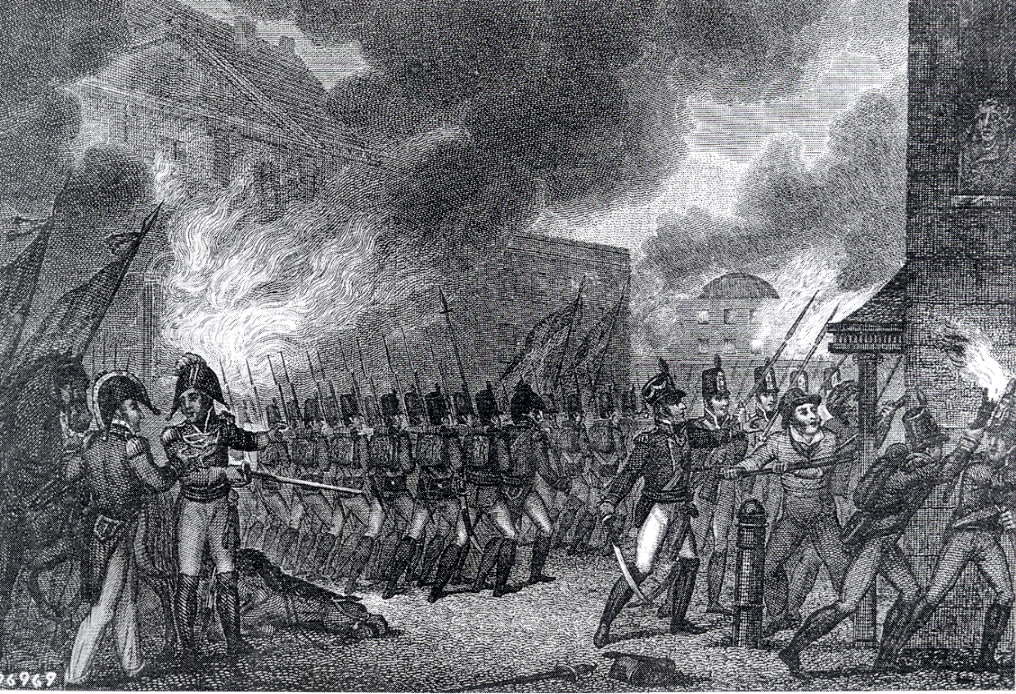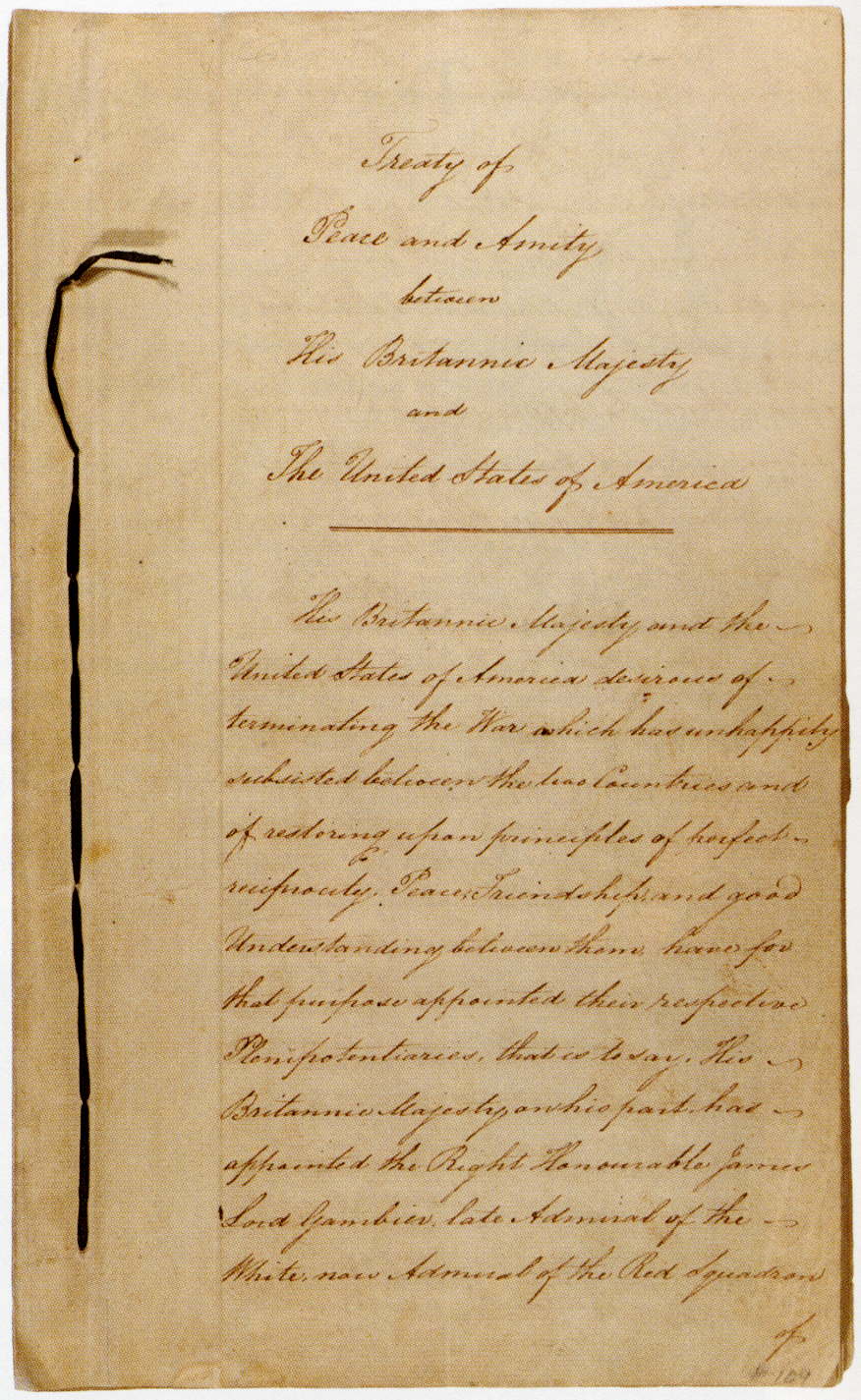
Treaty
of Ghent |

During the early decades of the nation's history, relations between the United States and Great Britain remained strained and then deteriorated sharply with the outbreak of war in Europe in 1803. England imposed a blockade on neutral countries such as the United States. In addition, the British took American sailors from their ships and "impressed" them into the British Navy. On June 1, 1812, President James Madison asked for a declaration of-war. Shortly afterward, Congress, despite the opposition of every Federalist, approved the declaration. The War of 1812 produced a string of U. S. military disasters. The most shocking of these was the British Army's burning of the Capitol, the President's house, and other public buildings in Washington on August 24 and 25, 1814.

By the end of that year, both sides agreed to discuss peace terms. A meeting in Belgium of U.S. delegates and British commissioners ended with the signing of the Treaty of Ghent on December 24, 1814. Great Britain agreed to relinquish claims to the Northwest Territory, and both countries pledged to work toward ending the slave trade. News of the treaty spread slowly, and word of peace did not reach the American and British armies for some time. U.S. forces, led by Andrew Jackson, won the Battle of New Orleans on January 8, 1815, ending the hostilities after the official peace.

Peace and Amity
between
His Britannic Majesty
and
The United States of AmericaHis Britannic Majesty and the United States of America desirous of terminating the war which has unhappily subsisted between the two Countries, and of restoring upon principles of perfect reciprocity, Peace, Friendship, and good Understanding between them, have for that purpose appointed their respective Plenipotentiaries... who, after a reciprocal communication of their respective Full Powers, have agreed upon the following Articles.
ARTICLE THE FIRST.
There shall be a firm and universal Peace between His Britannic Majesty and the United States, and between their respective Countries, Territories, Cities, Towns, and People of every degree without exception of places or persons. All hostilities both by sea and land shall cease as soon as this Treaty shall have been ratified by both parties as hereinafter mentioned. All territory, places, and possessions whatsoever taken by either party from the other during the war, or which may be taken after the signing of this Treaty, excepting only the Islands hereinafter mentioned, shall be restored without delay and without causing any destruction or carrying away any of the Artillery or other public property originally captured in the said forts or places, and which shall remain therein upon the Exchange of the Ratifications of this Treaty, or any Slaves or other private property; And all Archives, Records, Deeds, and Papers, either of a public nature or belonging to private persons, which in the course of the war may have fallen into the hands of the Officers of either party, shall be, as far as may be practicable, forthwith restored and delivered to the proper authorities and persons to whom they respectively belong. Such of the Islands in the Bay of Passamaquoddy as are claimed by both parties shall remain in the possession of the party in whose occupation they may be at the time of the Exchange of the Ratifications of this Treaty until the decision respecting the title to the said Islands shall have been made in conformity with the fourth Article of this Treaty. No disposition made by this Treaty as to such possession of the Islands and territories claimed by both parties shall in any manner whatever be construed to affect the right of either....

